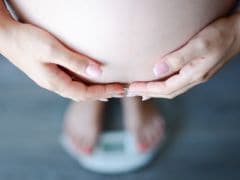


According to a study done by Ohio State University, people who don't watch TV and stick to home-cooked meals are at lower risk of obesity.

If your child is suffering from asthma, they may be at higher obesity risk later in childhood or adolescence according to this new study. In fact, asthmatic children were 51 per cent more likely to ...

Is your child spending more than five hours on digital devices such as tablets and smartphones? A new study warns that he or she may be 43 per cent more likely to be at risk ...

Adequate intake of folic acid during pregnancy is likely to protect children from a future risk of obesity.

A new study which was published in this week's New England Journal of Medicine and paid for by the U.S. government finds that much of a child's "weight fate" is set by age 5, and ...
Smoking, use of oral contraceptives or turbulence in married life such as divorce, death of a partner or separation were also found as some of the contributory factors in weight gain in women.

A regular eating pattern may prevent obesity in adolescents, according to a new Finnish study.When eating five meals - breakfast, lunch, dinner and two snacks - a day, even those with a genetic predisposition to ...

Sharing sweet treats at workplace may be contributing to several health problems such as obesity and poor oral hygiene, experts in the UK have warned.

Children with greater emotional dysregulation were more likely to be obese later, researchers said.

Preschoolers who are regularly in bed by 8 p.m., are far less likely to become obese teenagers than young children who go to sleep later in the night, a new research has found.